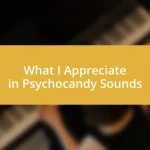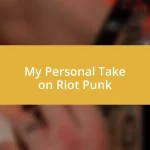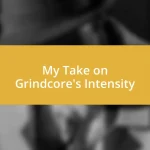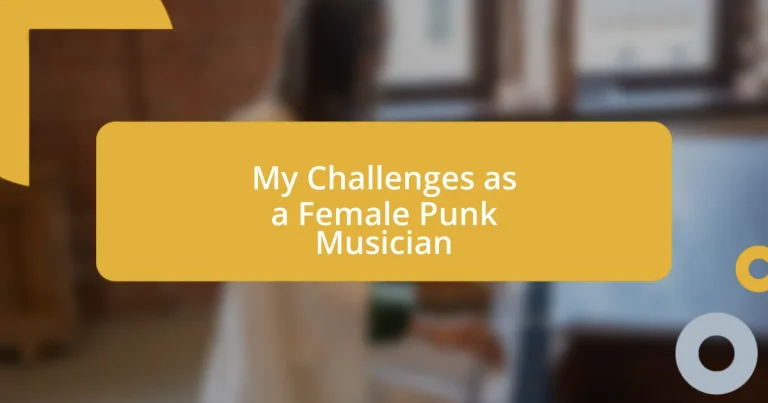Key takeaways:
- The challenge of acceptance in a male-dominated punk scene pushed the author to prove herself and seek authenticity in her music.
- Building supportive networks among female musicians fosters collaboration, solidarity, and combats feelings of isolation and competition.
- Overcoming stereotypes in punk culture requires collective action and individual defiance, with efforts like organizing all-female showcases to reshape perceptions.
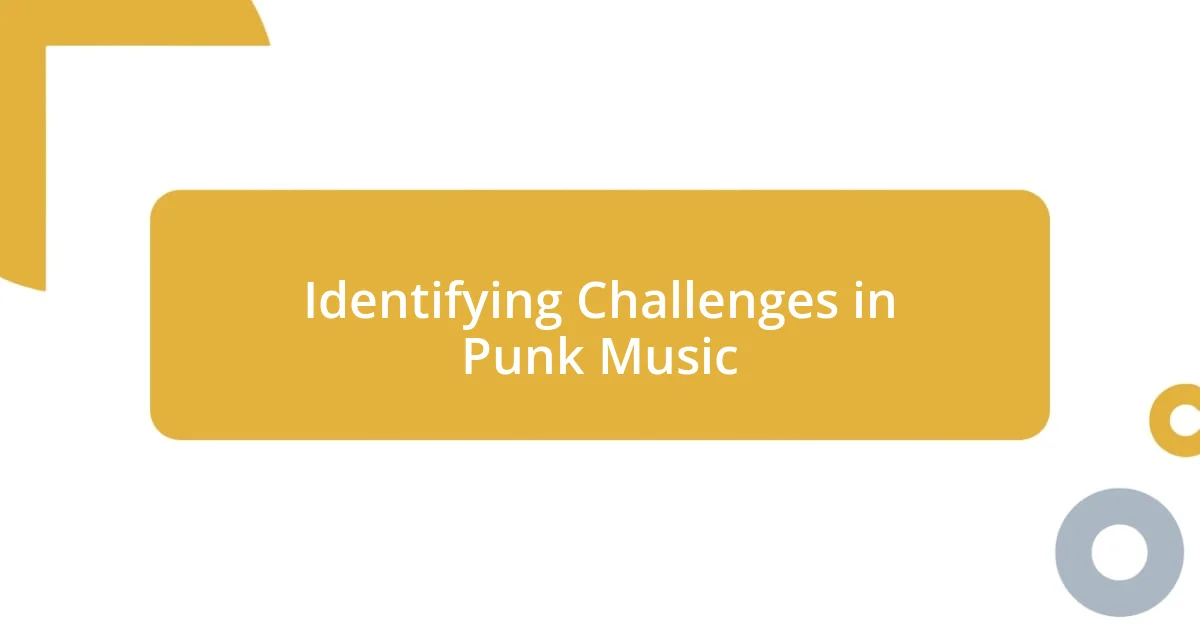
Identifying Challenges in Punk Music
When I think about the challenges in punk music, I immediately reflect on the struggle for acceptance. I remember feeling the weight of judgment as a young female musician in a mostly male-dominated scene. Have you ever felt pressure to prove yourself in a space where you don’t quite fit in? That feeling was all too familiar for me, often pushing me to work twice as hard to earn my place.
Navigating the expectations in punk can be tricky. There’s this unspoken notion of authenticity that can be incredibly daunting. I once faced criticism for writing songs that were more personal rather than just politically charged. It made me question if my voice truly belonged in this genre. Yet, it’s those personal stories that resonate deeply with many listeners—doesn’t that say something about the diversity of punk?
Another challenge I encountered was balancing the fierce community vibe with the often cutthroat competition. I vividly remember showcasing my music at a local venue, eager for support, only to be met with skepticism from peers. How do we build each other up in a scene that sometimes feels like it thrives on rivalry? These experiences have shaped my belief that collaboration and mutual support are crucial for growth and inclusion in punk music.
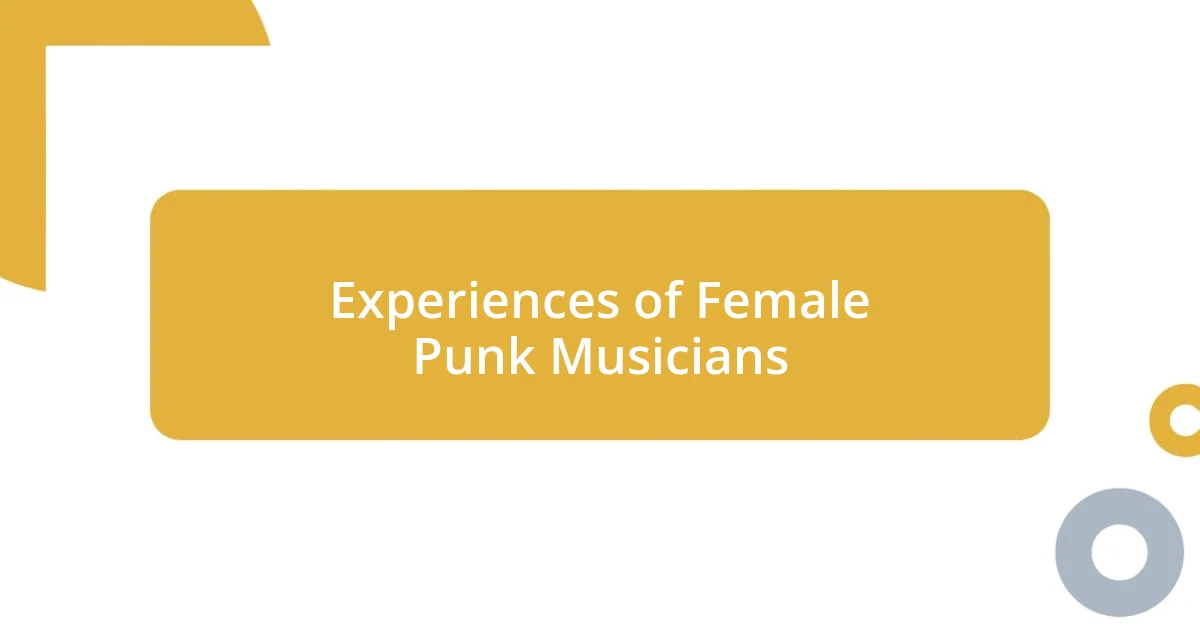
Experiences of Female Punk Musicians
Experiences in the punk scene can vary dramatically for female musicians. I remember attending a music festival, feeling a mix of excitement and anxiety. The moment I stepped onto the stage, I could sense the crowd’s energy shifting—was it curiosity or skepticism? It was as if I was navigating uncharted territory, striving to show that my passion and skill were just as impactful as that of any male performer. This moment solidified my desire to break barriers and redefine what it means to be a female punk musician.
In my journey, I’ve often faced unique hurdles regarding visibility. One time, after a gig, a promoter told me that booking female acts was “just good for diversity.” It stung, making me realize that being a female artist sometimes comes with the label of being a ‘token.’ I was determined to prove that my music wasn’t about fulfilling a quota; it was about authenticity and connection. Have you ever felt like you were asked to represent more than just yourself? That realization sparked a fire in me to take control of my narrative and continue making music that reflects my truth.
Moreover, the dynamics of collaboration have always intrigued me. While I’ve experienced moments of camaraderie, there have also been those challenging instances of jealousy and competition. I recall working on a project with a group of fellow female musicians and how empowering it felt to create together. But surprisingly, I was also met with an undercurrent of competition, as if we were pitted against one another instead of uplifting our shared experiences. How do we foster a true sense of community when not everyone is on board? It’s a delicate balance, but one I believe is vital for the growth of female punk musicians.
| Challenge | Experience |
|---|---|
| Acceptance | Feeling judged at venues and festivals while striving for recognition and connection. |
| Visibility | Being viewed as a ‘diversity hire’ rather than for talent and passion. |
| Collaboration | Navigating camaraderie and competition among female musicians to build support networks. |
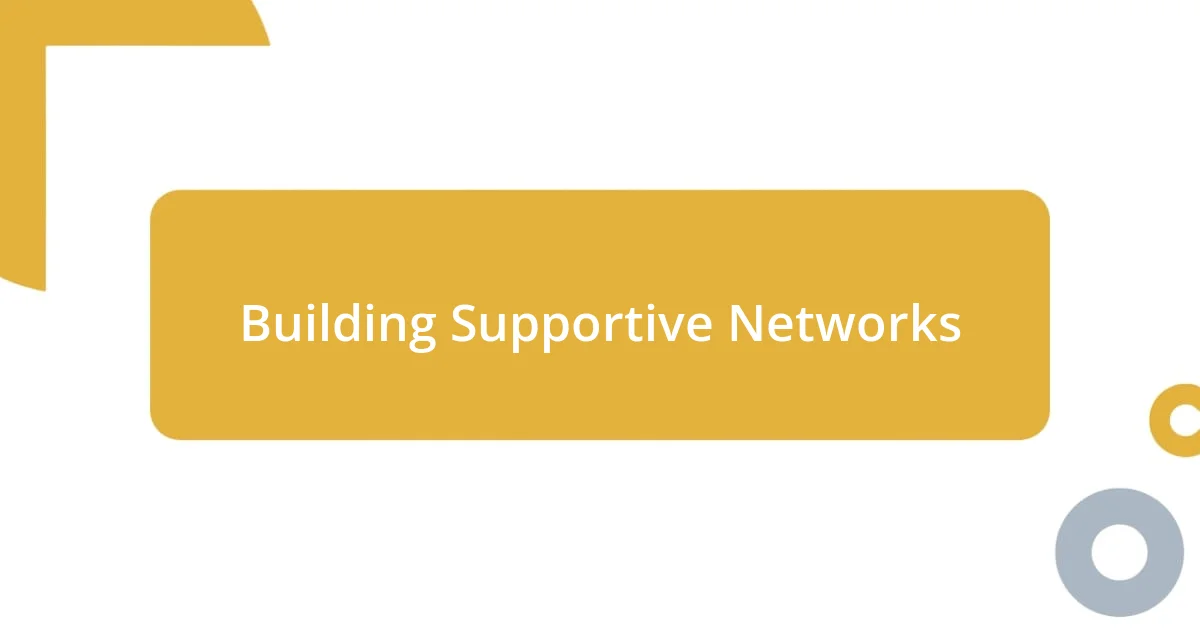
Building Supportive Networks
Building a supportive network has been essential in my journey as a female punk musician. I remember a time when I connected with a group of women who were just as passionate about music as I was. We shared stories, swapped songs, and even helped each other with promotion. It felt like finally finding my tribe, a place where we could uplift one another instead of competing. That sense of solidarity can be a powerful antidote to the isolation that often accompanies being a woman in a male-dominated scene.
To build these networks effectively, I’ve found it helpful to focus on a few key strategies:
- Attend Networking Events: Engaging in local shows and festivals allows for direct connections with like-minded artists.
- Utilize Social Media: Platforms like Instagram and Twitter can be great to support others’ work, share experiences, and create visibility.
- Collaborate on Projects: Working together on songs or shows fosters both creative and personal bonds.
- Create Safe Spaces: Establishing venues or online groups for women in music can help cultivate a nurturing environment.
- Mentorship: Seeking guidance from established female musicians can provide invaluable insights and encouragement.
These strategies can deepen connections and create a thriving community rooted in support and mutual respect. After all, in a genre that celebrates rebellion, it’s heartening to know that we can challenge the status quo together.
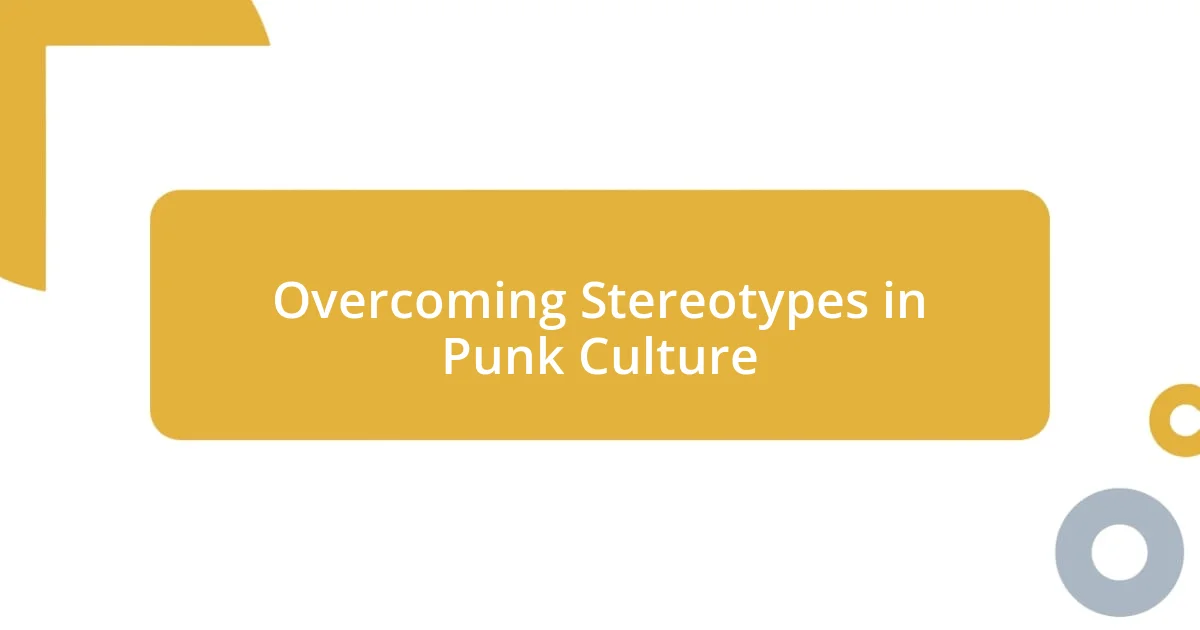
Overcoming Stereotypes in Punk Culture
Overcoming stereotypes in punk culture has been a powerful aspect of my journey. Early on, I noticed that many people expected me to conform to certain ‘feminine’ roles, not realizing punk is all about defiance and individuality. I vividly recall performing a cover of a classic punk anthem, and during the set, I watched as some audience members looked surprised, as if they couldn’t comprehend that a woman could truly embody that raw, rebellious spirit. Wasn’t that the essence of punk? To challenge norms and express unfiltered emotion?
Over time, I learned that confronting these expectations was not just a personal challenge, but a collective one. I had the chance to join a female-led panel at a punk convention. Sharing our experiences revealed a common thread: we all faced the weight of needing to prove ourselves in this scene. It was both liberating and empowering to speak out loud about those moments of doubt and judgment. How many others have felt that pressure to ‘fit in’ or, worse, ‘stand out’? It’s a paradox that can either motivate us to push harder or hold us back entirely.
In small but meaningful ways, I’ve endeavored to reshape perceptions within my community. One memorable moment was when I organized an all-female showcase. Not only did it shift the focus from our gender to our artistry, but the energy in the room was electric. It was exhilarating to see people in the audience not just accepting, but genuinely enjoying the diversity of our talent. I realized then that changing the narrative doesn’t happen overnight; it’s a constant push against the tide of stereotypes and perceptions, but every step forward makes a difference. Wouldn’t you agree that every little act of defiance counts?





